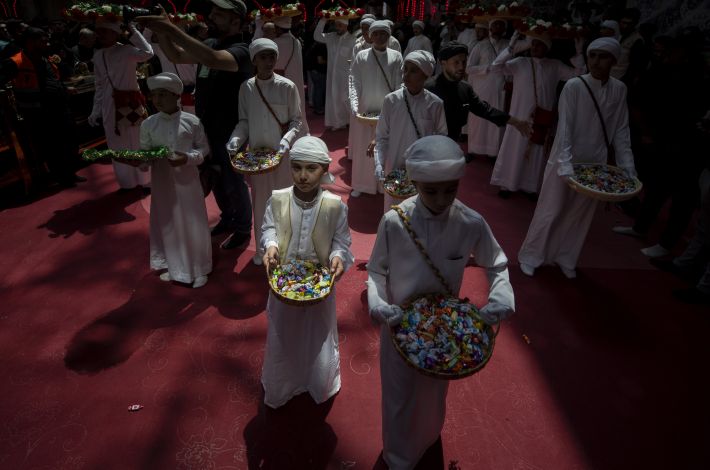The Karbala mourning processions commemorate on the eighth day of Muharram the bravery, loyalty, and sacrifices of Al-Qasem son of Imam Al-Hassan (peace be upon them) in the tragic Battle of Ashura.
The roads leading to the shrines of Imam al-Hussayn and his brother Aba al-Fadl al-Abbas (peace be upon them), the entrances to the old city, and reaching the holy shrines, witness the arrival of the Hussaini processions to commemorate the tragedy of the martyrdom in an annual tradition that the Karbala mourning processions have been keen on.
During the procession of the mourning caravans, the mourners' voices echoed with the virtues of Al-Qasem (peace be upon him) and what he offered on the day of Ashura, and his martyrdom in the hands of his uncle Imam al-Hussayn (peace be upon him), recalling his bravery and heroic stance in defending the Hussaini cause and its principles.
The mourning processions during the first ten days of Muharram are specific to the people of Karbala. It is a mourning tradition they have been keen on maintaining since ancient times, starting with the descent of the (Zinjeel) mourning processions to commemorate the tragedy of the martyrdom of Imam al-Hussayn (peace be upon him) and to renew their pledge and loyalty to him (peace be upon him).
The holy shrines of Imam al-Hussayn and al-Abbas (peace be upon them) witness the influx of large crowds of believers from inside and outside Iraq to participate in commemorating the Ashura anniversary. The voices of the mourners rise with Hussaini chants that embody the meanings of mourning and loyalty to the Ahl al-Bayt (peace be upon them), their noble conduct, and their sublime teachings.













